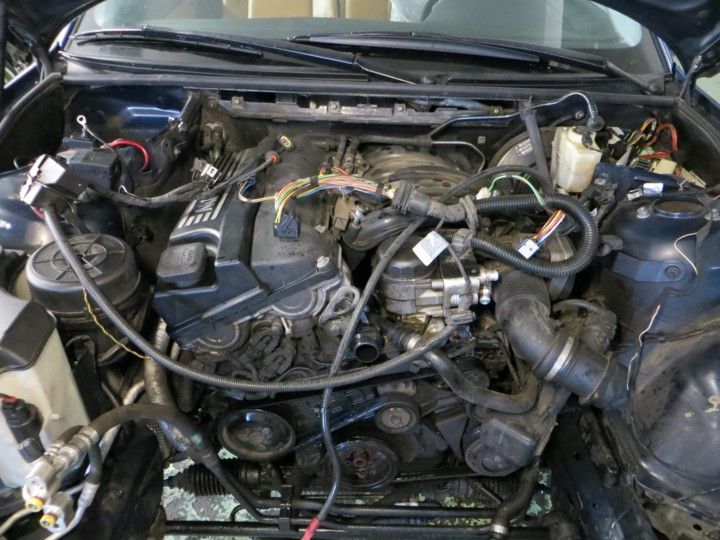Key Attributes to Search For When Acquiring an Engine for Automotive Applications
When thinking about the purchase of an engine for vehicle applications, a number of crucial features call for careful examination to make sure ideal performance and capability. From power and efficiency capacities to sustain effectiveness, toughness, and adherence to discharges criteria, each facet plays a critical role in establishing the engine's viability for certain automobile needs. Moreover, cost-effectiveness remains a pivotal variable in the decision-making procedure, balancing quality with monetary factors to consider. These functions jointly add to the total effectiveness and dependability of the engine, influencing the driving experience and lasting satisfaction of the customer.
Power and Efficiency
When selecting an automotive engine, purchasers focus on power and efficiency to make sure ideal driving experience and performance. A well-performing engine not just supplies power effectively but additionally runs efficiently across different speed varieties and driving conditions.
In addition, factors such as engine turbocharging, variation, and crossbreed technologies play significant roles in boosting both power and performance degrees. Inevitably, selecting an engine that uses a powerful combination of power and performance guarantees a gratifying and efficient driving experience.
Fuel Performance
Optimizing fuel effectiveness is a critical consideration for customers when reviewing automobile engine alternatives. Modern engines with functions like straight fuel shot, turbocharging, and variable shutoff timing can dramatically improve gas efficiency by boosting combustion processes and reducing power loss.

Longevity and Reliability
Accomplishing resilient performance and trustworthy procedure is vital for customers evaluating the durability and integrity of automotive engines. When considering an engine for auto applications, durability refers to the engine's capacity to endure wear, tension, and severe operating conditions over an extended duration. Dependability, on the various other hand, indicates that the engine can continually perform its designated function without unforeseen malfunctions or failings.
Consumers need to try to find engines built with premium materials and exact engineering to make certain durability. Parts such as bearings, pistons, and crankshafts must be long lasting to handle the engine's power result without premature wear. Additionally, engines geared up with advanced air conditioning systems, reliable lubrication, see this website and robust filtration systems have a tendency to show greater levels of reliability.
Regular upkeep and adherence to supplier recommendations are also essential factors in preserving an engine's sturdiness and dependability. By following upkeep schedules, using suggested liquids, and resolving any problems immediately, customers can make best use of the lifespan and performance of their vehicle engines. Inevitably, prioritizing durability and reliability in engine choice can cause a much more gratifying ownership experience with less unanticipated interruptions.
Exhausts Compliance
Making sure compliance with emissions policies is a crucial element of assessing automotive engines for ecologically mindful customers. With increasing problems about air quality and environmental effect, rigorous exhausts requirements have been established around the world to reduce hazardous toxins released into the ambience. When buying an engine for automotive applications, it is necessary to consider its exhausts conformity to lessen the carbon footprint and abide by lawful needs.
Modern engines are geared up with innovative emission control modern technologies such as catalytic converters, exhaust gas recirculation (EGR) systems, and selective catalytic reduction (SCR) to reduce damaging exhaust gases like nitrogen oxides (NOx), carbon monoxide (CO), and hydrocarbons (HC) These systems play a vital duty in making certain that the engine fulfills the defined discharges standards and operates within permissible restrictions.

Cost-effectiveness
When taking into consideration automotive engine purchases, assessing cost-effectiveness is critical for customers looking for both performance and value. It includes the total expenses related to upkeep, fuel usage, and prospective repairs over the engine's lifespan.
One key element of cost-effectiveness is gas effectiveness. Engines that are developed to make the most of gas economy can cause substantial financial savings with time, especially for individuals who drive frequently or over fars away. Furthermore, taking into consideration the schedule and price of spare components and maintenance can add to the general cost-effectiveness of an engine. Guaranteeing that maintenance and fixings are sensible and easily accessible can avoid unanticipated financial burdens down the line.

Final Thought
Finally, when purchasing an engine for automotive applications, it is essential continue reading this to take into consideration crucial features such as power and efficiency, fuel effectiveness, sturdiness and dependability, discharges conformity, and cost-effectiveness. These variables are crucial in making certain that the engine meets the needs of the automobile and runs successfully in numerous driving conditions - bmw 318ti. Making a notified decision based upon these standards will ultimately cause a successful and reliable automotive engine acquisition
From power and performance capacities to fuel adherence, resilience, and effectiveness to emissions standards, each aspect plays a vital function in identifying the engine's viability for details automotive demands. Engines made to run on alternate fuels such as electrical power, hybrid systems, or biofuels can use improved gas economy and reduced discharges contrasted to standard gas or diesel engines. Consumers ought to carefully take into consideration the fuel efficiency rankings and modern technologies incorporated right into vehicle engines to make enlightened getting decisions that straighten with their top priorities for cost savings and sustainability.
When thinking about an engine for automotive applications, resilience refers to the engine's capability to endure wear, tension, and severe operating problems over an extended period.In conclusion, when purchasing an engine for automobile applications, it is vital to think about vital functions such as power and performance, fuel dependability, toughness and effectiveness, exhausts compliance, and cost-effectiveness.